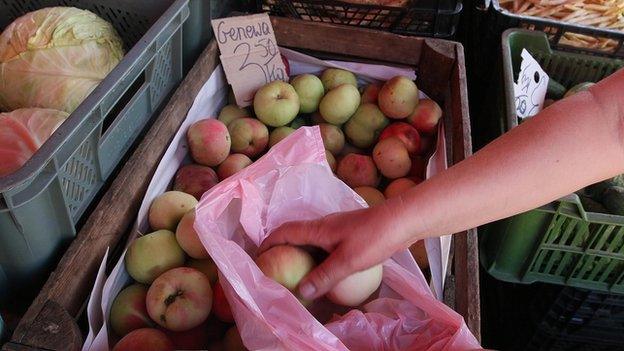Russia-Turkey crisis: Food and foreign policy mix again
- Published
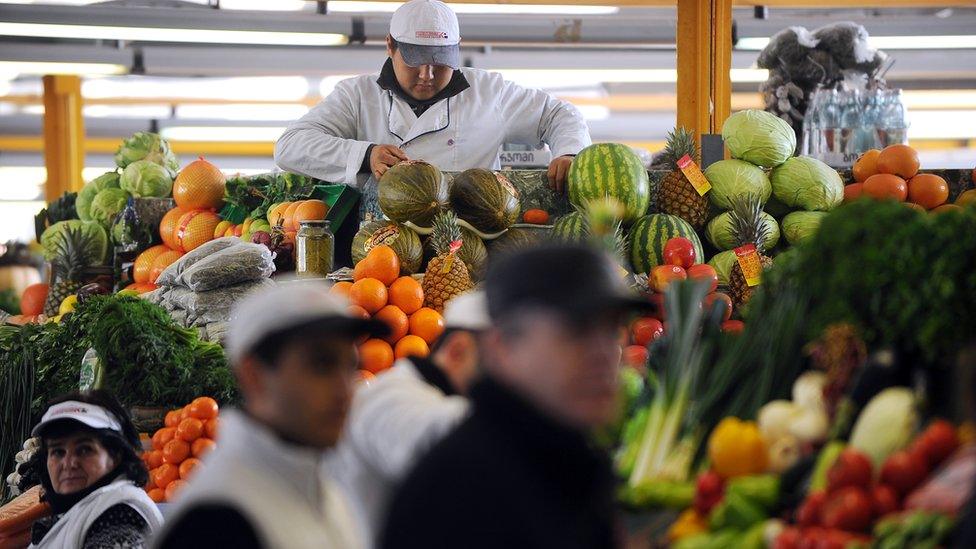
A large proportion of Russia's vegetables and citrus fruits come from Turkey
What connects Turkish tomatoes and missiles?
A lot, apparently. At least according to Gennady Onishchenko, Russia's former chief sanitary inspector and now prime ministerial aide, who said on Wednesday that "each Turkish tomato" bought in Russia contributes to the country's economy and thus to purchasing missiles that could potentially be fired at Russian warplanes.
The comment came at a moment of high tension, following the downing of a Russian Su-24 bomber on the Turkey-Syria border.
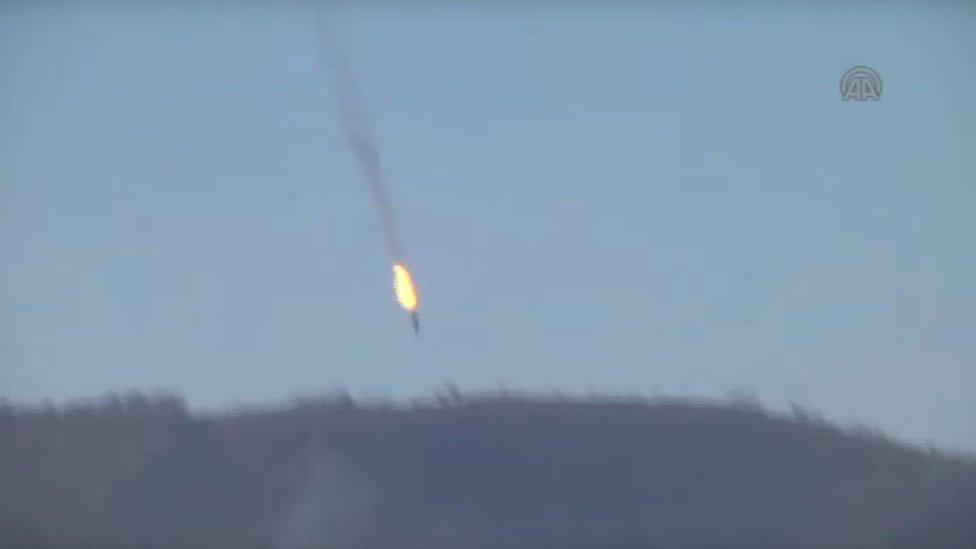
Turkey shot down a Russian military aircraft...
Now, the Russian agriculture minister has upped the ante, announcing that around 15% of Turkish produce does not meet Russian safety standards. Controls are being tightened, with possibly serious consequences for Turkish exporters.
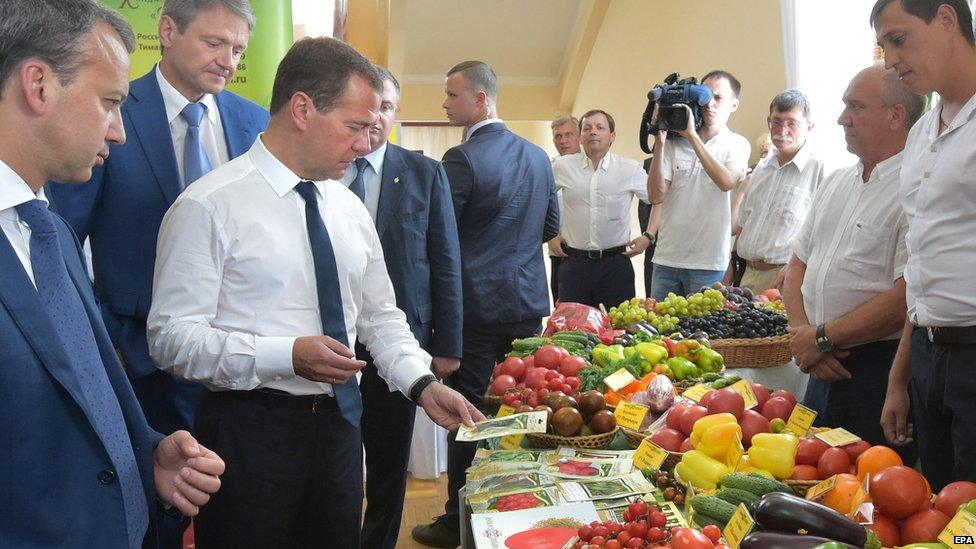
...So an aide to PM Dmitry Medvedev (centre front), pictured here with home-grown produce, has called for a boycott of Turkish tomatoes
The country has exported food and agricultural produce worth over €1bn (£702m) to Russia already this year, and Russia says 20% of its vegetable imports come from Turkey.
Moscow could fulfil its fruit and vegetable needs by buying from other countries, such as Iran, Israel, Morocco, Azerbaijan, China, South Africa and Argentina, the minister said. How serious the immediate effect of a Turkish food ban on prices and supplies would be, however, remains unclear.
But the connection between food and foreign policy in Russia is nothing new. Be it bans on Georgian wine, Polish apples, Lithuanian milk, or EU cheese, Russia's food import policies and "safety" concerns often seem to align with its wider foreign policy goals.

Georgian wine
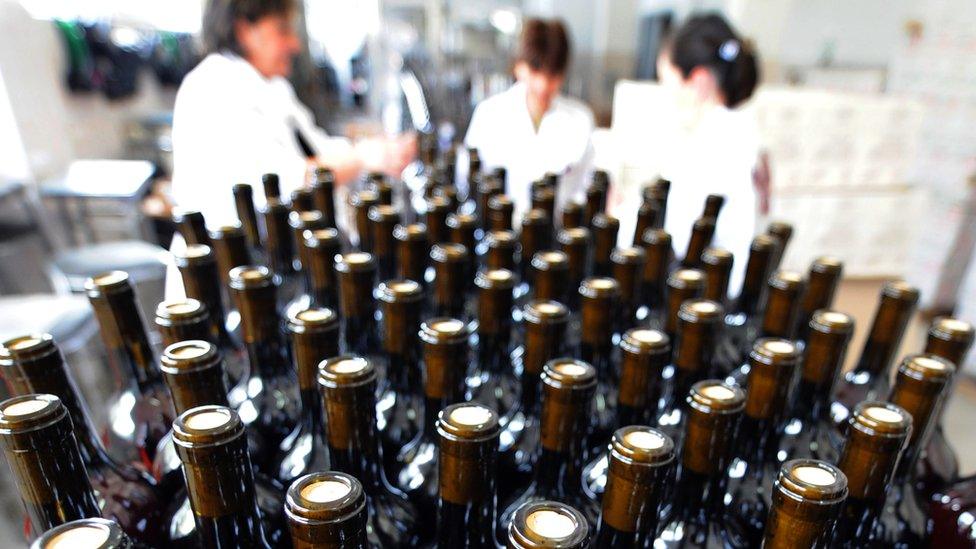
The ban on Georgian wine was only lifted in 2013
In March 2006, Russia banned wine imports from Georgia, external, citing health risks. The industry relied on Russian drinkers, and was hit hard.
At the time, analysts said Russia was irritated at Georgia's increasingly pro-Western stance and ambitions to join Nato.
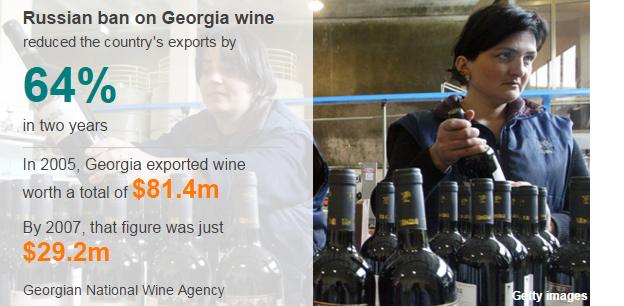
Russian ban on Georgia wine
reduced the country's exports by
64%
in two years
-
In 2005, Georgia exported wine worth a total of $81.4m
-
By 2007, that figure was just $29.2m
The Georgian president accused Russia of economic blackmail.
The ban was finally lifted in 2013, with Russia quickly resuming its place as the top importer of Georgian wine.

Kadri Liik, a Russia expert at the European Council on Foreign Relations, called it "an old and familiar playbook", either triggered by a specific incident or used as a general tool to "punish" countries, especially those in the post-Soviet space, for upsetting Russia.
As a result, the Russian consumer watchdog, Rospotrebnadzor, and government officials have often felt compelled to explain that sudden revelations of poor practices and subsequent bans are not political.
When confectionery imports from Ukraine were suspended in 2013, including by a firm owned by Ukrainian President Petro Poroshenko, State Duma deputy Vadim Solovyov defended the move.
"We prohibit the import only of those goods that don't meet the standards and agreements that we have," he said, quoted by Russia Today, external.
Steve Rosenberg explains the history of Russian culinary diplomacy

EU food
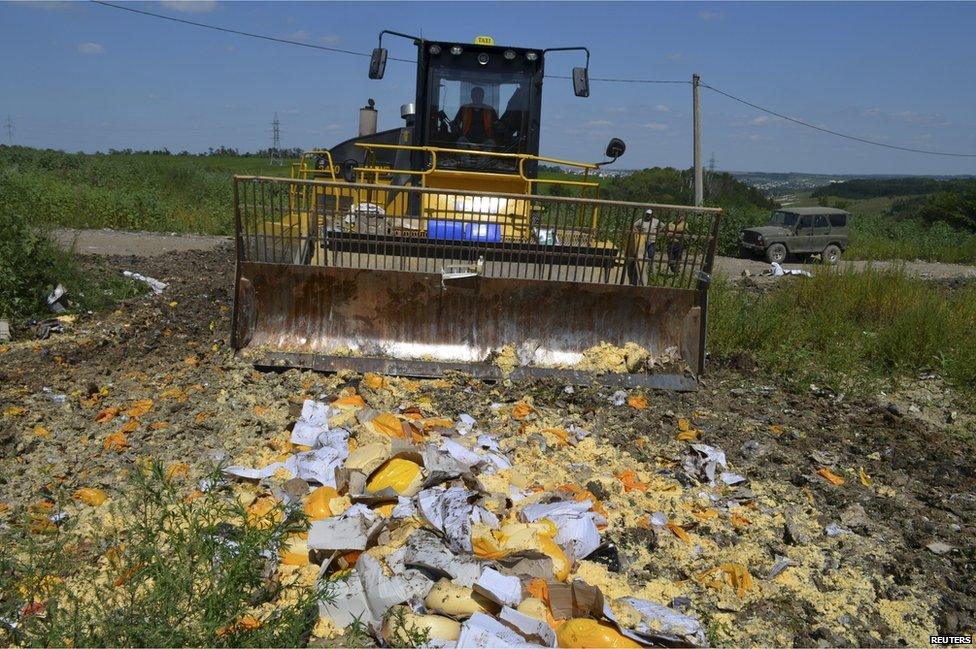
Belgorod, western Russia: A bulldozer destroys banned foreign cheese
Russia retaliated against Western sanctions over the Ukraine crisis by banning most food imports from EU states, Australia, Canada, Norway and the US in August last year.
It extended the ban to Iceland, Liechtenstein, Albania and Montenegro this August, and has threatened to add Ukraine to the list.
The destruction of banned produce, like cheese, bacon and fruit, sparked the anger of anti-poverty campaigners.


Last year, the closure of several McDonald's outlets in Moscow for alleged "sanitary violations" left many Russians flummoxed, including a fast-food chain owner who said the US burger giant was viewed as exemplary by local restaurateurs.
By raising the spectre of restrictions on Turkish food, Russia is once again using food safety to show its anger at another state.
But at the same time, Ms Liik says, "it shows Russia is trying to keep the row on a bilateral level" in order to avoid a further escalation of tensions.
In this case, a fight involving tomatoes is preferred to one involving missiles.
- Published7 August 2015
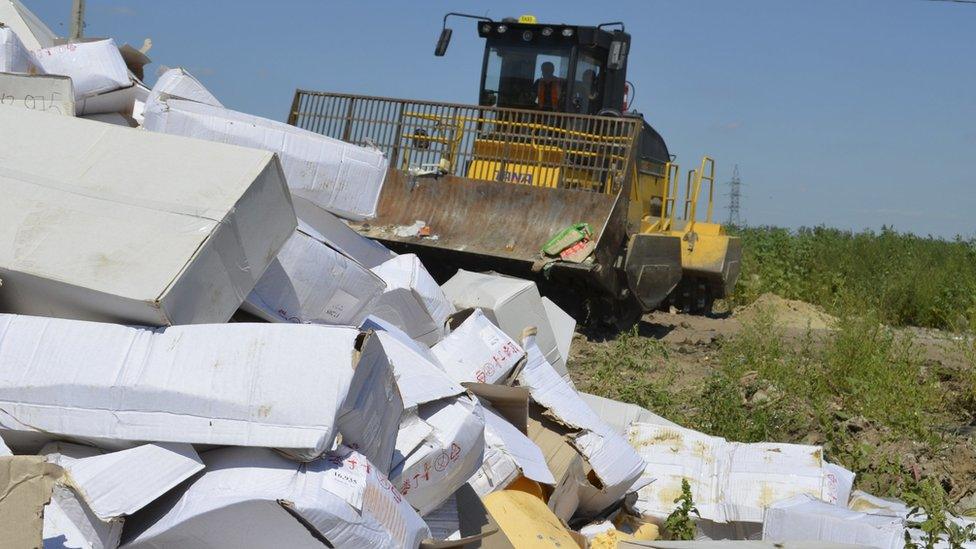
- Published17 October 2014
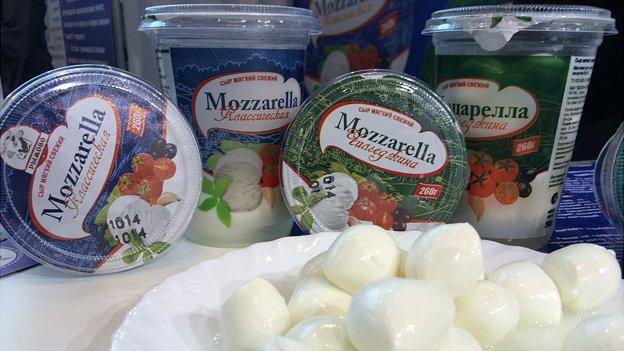
- Published1 August 2014
